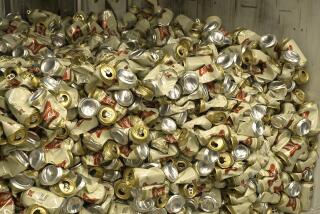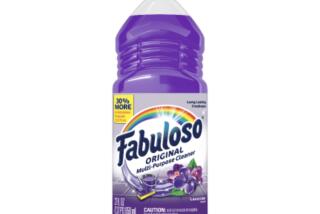Cola Illnesses Linked to Pesticide, Carbonation
- Share via
Pesticide exposure in one bottling plant and substandard carbonation gas in another led to the contamination of Coca-Cola products that sickened dozens of Belgians, Coca-Cola Co. admitted. While the world’s largest soft drink maker contended that the products are still safe, the scare that prompted Belgium to ban all Coke soft drinks Monday has spread to its neighbors. Luxembourg said it was withdrawing from its stores all drinks produced by Coca-Cola. The company’s Dutch arm recalled all its products originating from Belgium and ordered its distributors in the Netherlands to stop any imports of Coca-Cola products from Belgian suppliers. France also banned Coke products. Philippe Lenfant, general manager of Coca-Cola Belgium, said that at the Antwerp, Belgium, plant, gas used to carbonate drinks about two weeks ago was “of bad quality.” Coca-Cola said that only the taste was affected and that the products had been recalled. In Dunkirk, France, a pesticide used to treat wooden crates in which the cans are placed leaked onto the underside of the cans. Lenfant insisted that the pesticide had not leaked into drinks. The Atlanta, Ga.-based company said both problems were confined to products sold in Belgium. Coke shares fell $1.06 to close at $63.75 on the New York Stock Exchange.
More to Read
Inside the business of entertainment
The Wide Shot brings you news, analysis and insights on everything from streaming wars to production — and what it all means for the future.
You may occasionally receive promotional content from the Los Angeles Times.










